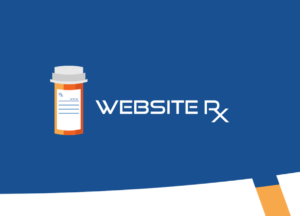Do you really want to know whether you should build a website yourself or hire a designer, once and for all?
Well, read on! We break it down below.
Introduction

For many businesses, having an established online presence is a fact of life. New businesses, and even more established companies use websites to reach revenue goals.
Let’s face it: a well-crafted website can be an amazing marketing tool.
The right website is well-designed, engaging, and most important, it should convert prospective customers into long term clients
But the cost of paying a designer or marketing agency can be prohibitive for many businesses. Social media (i.e. Instagram, etc.) proves that business can be done without a formal online website.
According to PR Newswire 2021 statistics, around 28% of small businesses don’t have a website.
According to EarthWeb, there are over 200 million business on Instagram.
https://earthweb.com/how-many-instagram-business-accounts-are-there
Go figure! So… Do you need to build one in the first place, or pay an agency to build one for you?
Well… it depends.
As a website design agency, we could pitch our web consulting services to you, the curious reader.
Instead, we put this article together to help you decide. Let’s do some analysis to discover if DIY’ing your website is right for you.
Paying an agency to develop a website

Paying for a company to build a website is a great option, but it’s one of a few. Let’s discuss some pros and cons.
Pro # 1: It’s fast (sometimes)
Having your website built by an agency can be a quick and pain process with the right designer.
But you’ll want to make sure you work with an agency that has a clear, tried and true process.
With this in place, you can have the right website built for you and operational in a matter of weeks, or even days.
It also helps to come prepared with answers to common questions. This will help the agency develop the right site for you.
Here’s a list of questions we ask every client to help guide our initial consultations.
Pro # 2: Tailored Design
When working with an agency, you’ll be able to rely on the expertise of that company.
A decent agency will understand your current needs.
They will also help uncover your future needs. That way, your website can scale as your company does.
A decent agency will also look at ways to make the site produce more leads and in turn more business.
Whether that’s in the form of social media marketing, email campaigns, SEO, etc.
Con # 1: Cost
Building your own website will be cheaper, at least, initially.
You will not have to pay someone else to build your site.
You’ll be able to use that money for other important business, marketing or product.
Each company’s prices will differ and cheap is not also better.
Depending on your needs, it may also range from $1,500 to beyond $10,000.
Keep in mind: The wrong website design will cost your business. And in critical ways, such as in the form of missed leads and a less than perfect online reputation. Like most things in life, you get what you pay for.
Con # 2: Success depends on communication
Working with a agency and trusting them can be scary.
After all, you are trusting them to handle such an important part of your business.
We have all heard the horror stories. You could end up with an amateur web design agency who ghosts you after initial deposit.
Our recommendation is to consider local talent, and above all, do your research.
Consider asking your family, friends and social circles. See if they know of a decent web design company. Find out if they have worked with a reputable one in the past. You can also check their Google Reviews, Yelp, Angi’s, and the Better Business Bureau.
DIYing your own website

Managing your own website can be a success for the right company owner with the right mindset. The internet is vast and you can learn anything with a few clicks of a mouse.
Many hosting companies (GoDaddy, Bluehost, Wix, Square, etc.) have packages that include website builders. So the software to build out a website can cost you: $0.
If the goal is to get a basic website up as soon as possible, that may be an option for you.
But let’s do some comparison first. Let’s start with the positives.
Pro #1: Speed
DIYing your site may save some time on the front end, since you will not need to consult with an agency.
If you take the time to identify your present and future website needs, a basic static theme might be all you need.
Pro # 2: Freedom
When tackling web design yourself, you may have a bit more control.
You will be able to make edits on the fly, provided you can overcome the learning curve.
Some customers like to be hands-on (that’s a good thing!) and are eager to learn and build their skills. It’s freeing to be able to see a change needed on your site and login and tackle it yourself.
And a few cons to consider:
Con #1: Not tailored to you
Website builder templates are built with your company in mind.
This means that they may not fit your branding well. This can be detrimental – you won’t know what features you are getting with these website builders.
Imagine needing to build out a website for your photography business. You find and buy hosting, and see that they offer a free website builder tool. Unfortunately, after you paid $$$, you’re likely to find out that the theme isn’t as flexible as needed. You’ll spend hours fiddling with the site and code. And it doesn’t even showcase your work well. Not cool.
Con #2: It’s not as fast as you may think
There is a learning curve, as with anything. The free builders are difficult to work with and understand. If you have a background in IT or web development, it’s likely you’ll catch on.
But if you are new to web design and don’t have the time (likely hours) to learn, it will be tough. You will also have to understand hosting, themes, graphic design, and SEO.
Depending on how you build your site, you could be looking at reading lines of code.
Con #3: Pricing
What’s worse, some of the builders have free and paid tiers. And as with everything, the paid tiers have the better features. Like that one feature (i.e. photo carousel, or calendar/booking app) that you need. Sometimes, free isn’t indeed free.
Conclusion

Deciding between DIYing your website or paying a 3rd third party is as much a business decision as it is a personal one.
Take some time to think about your company, how you want your company to grow and your business needs. After that, get some advice (like you are doing now) and find out what makes sense.
If you are thinking about going the DIY route, consider:
- Do I have the time?
- Do I have the knowledge and expertise required?
- Would I rather put energy into other areas of my business?
If you are thinking about going the 3rd party route, consider:
- Do I know anyone that does websites?
- Did I do my due diligence and review prospective agencies?
- Do I have the budget?
It’s critical to get this step right in your journey. The right website, whether you do it yourself or not, can be very rewarding to your business.

Trust us: We know, and have proof! At WebsiteRX, our client reports an average 80% revenue growth in 6 months. Our process is straight forward and proven. We’ll build to address your needs today and lead you to success in the future.
We’d love to work with you to help you decide which route to take. Our consultations are always free.

